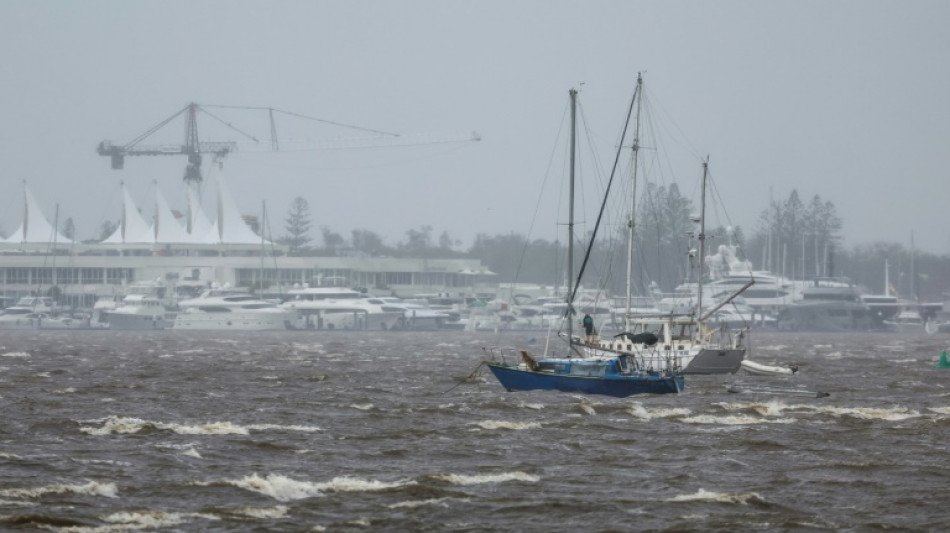
RBGPF
69.0200


Wild weather has blacked out more than 300,000 homes and businesses on Australia's east coast, officials said Sunday, with one driver confirmed dead and a dozen troops injured.
After days hovering off the coast as a category 2 tropical cyclone generating heavy weather across the region, Alfred weakened into a tropical depression before making landfall on Saturday evening.
Strong gusts and heavy rain have brought down power lines and sparked flood warnings on swollen rivers along a 400-kilometre (250-mile) stretch of the coast straddling southeast Queensland and northeast New South Wales.
Utility companies said about 310,000 properties in southeast Queensland and at least another 16,000 in northeast New South Wales were still without power on Sunday.
"Customers need to be prepared to be without power for several days," Queensland's Essential Energy said.
"The biggest challenges to getting power back on will be rising flood waters and swollen creek beds, fallen vegetation and mud slides impacting access roads," it said in a statement.
About 14,600 people are under emergency warnings related to the weather system in New South Wales, the state's emergency services said.
"In the last 24 hours, 17 incidents have occurred as a result of people driving into flood waters," said emergency services deputy commissioner Damien Johnson.
"Not only is it a danger to yourself and your family, it is also dangerous as well for the volunteers, the emergency services workers that need to rescue you."
A 61-year-old man's body was found Saturday after his four-wheel-drive pickup truck was swept off a bridge into a river in northern New South Wales.
He had escaped from the pickup and tried in vain to cling to a tree branch in the river before disappearing into the rapid waters on Friday, police said.
- Perilous weather -
In a separate incident Saturday, police said 13 troops were injured and taken to hospital when two army trucks rolled over during a deployment to clear roads near the flood-prone New South Wales city of Lismore.
Twelve soldiers were still in hospital Sunday, two of them in a serious condition, New South Wales Premier Chris Minns told a news conference.
"We wish a speedy recovery for all of those young soldiers," he said.
Prime Minister Anthony Albanese warned that the weather was still perilous.
"The situation in Queensland and northern New South Wales remains very serious due to flash flooding and heavy winds," Albanese said.
"Heavy rainfall, damaging wind gusts and coastal surf impacts are expected to continue over coming days."
Warnings for floods, severe weather and hazardous surf have been issued for parts of Queensland and New South Wales, the government's bureau of meteorology said.
"The heavy rain, and the risk of flash flooding and major riverine flooding, will continue into next week," it warned Queensland residents, though the system was expected to weaken as it moved inland.
K.Lam--ThChM